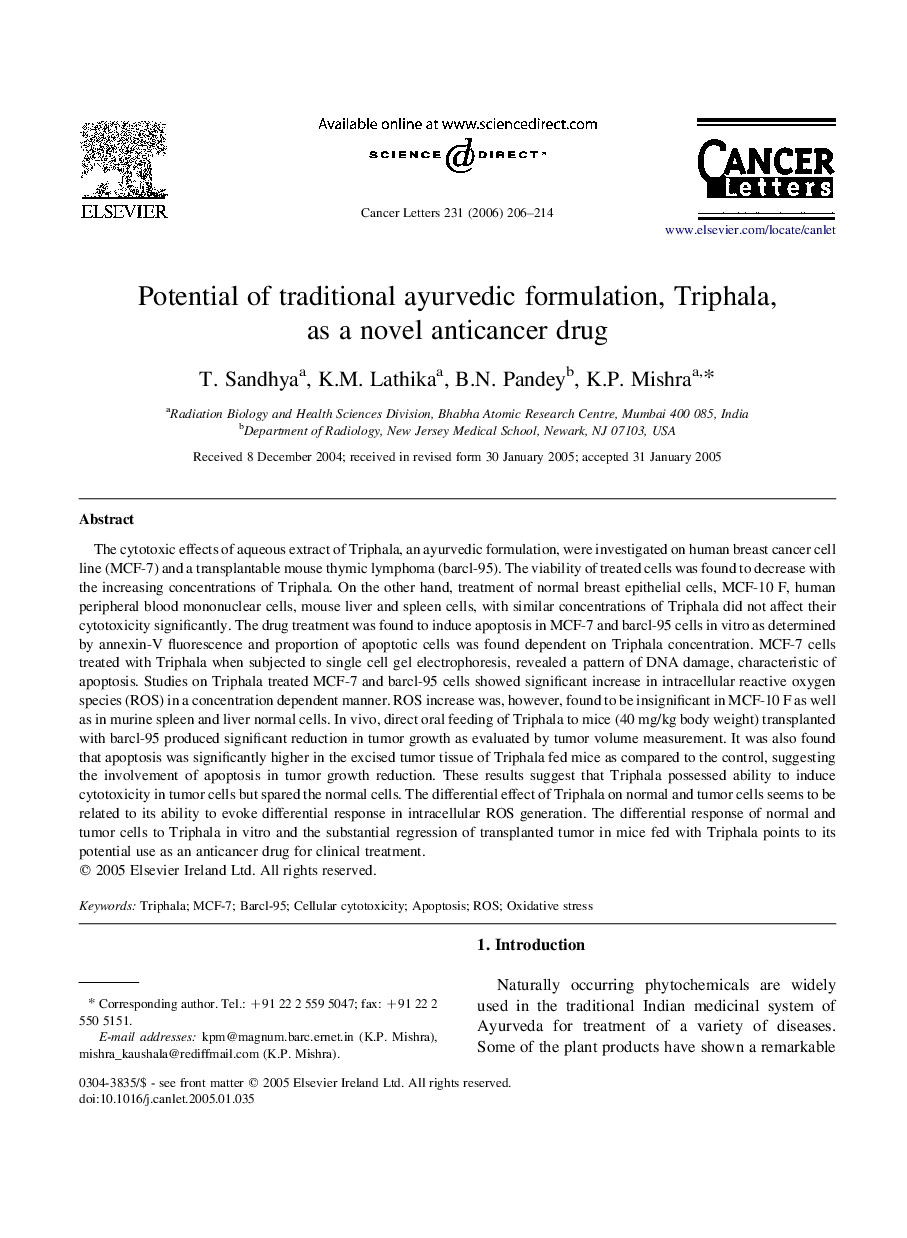| کد مقاله | کد نشریه | سال انتشار | مقاله انگلیسی | نسخه تمام متن |
|---|---|---|---|---|
| 2116905 | 1085044 | 2006 | 9 صفحه PDF | دانلود رایگان |

The cytotoxic effects of aqueous extract of Triphala, an ayurvedic formulation, were investigated on human breast cancer cell line (MCF-7) and a transplantable mouse thymic lymphoma (barcl-95). The viability of treated cells was found to decrease with the increasing concentrations of Triphala. On the other hand, treatment of normal breast epithelial cells, MCF-10 F, human peripheral blood mononuclear cells, mouse liver and spleen cells, with similar concentrations of Triphala did not affect their cytotoxicity significantly. The drug treatment was found to induce apoptosis in MCF-7 and barcl-95 cells in vitro as determined by annexin-V fluorescence and proportion of apoptotic cells was found dependent on Triphala concentration. MCF-7 cells treated with Triphala when subjected to single cell gel electrophoresis, revealed a pattern of DNA damage, characteristic of apoptosis. Studies on Triphala treated MCF-7 and barcl-95 cells showed significant increase in intracellular reactive oxygen species (ROS) in a concentration dependent manner. ROS increase was, however, found to be insignificant in MCF-10 F as well as in murine spleen and liver normal cells. In vivo, direct oral feeding of Triphala to mice (40 mg/kg body weight) transplanted with barcl-95 produced significant reduction in tumor growth as evaluated by tumor volume measurement. It was also found that apoptosis was significantly higher in the excised tumor tissue of Triphala fed mice as compared to the control, suggesting the involvement of apoptosis in tumor growth reduction. These results suggest that Triphala possessed ability to induce cytotoxicity in tumor cells but spared the normal cells. The differential effect of Triphala on normal and tumor cells seems to be related to its ability to evoke differential response in intracellular ROS generation. The differential response of normal and tumor cells to Triphala in vitro and the substantial regression of transplanted tumor in mice fed with Triphala points to its potential use as an anticancer drug for clinical treatment.
Journal: Cancer Letters - Volume 231, Issue 2, 18 January 2006, Pages 206–214